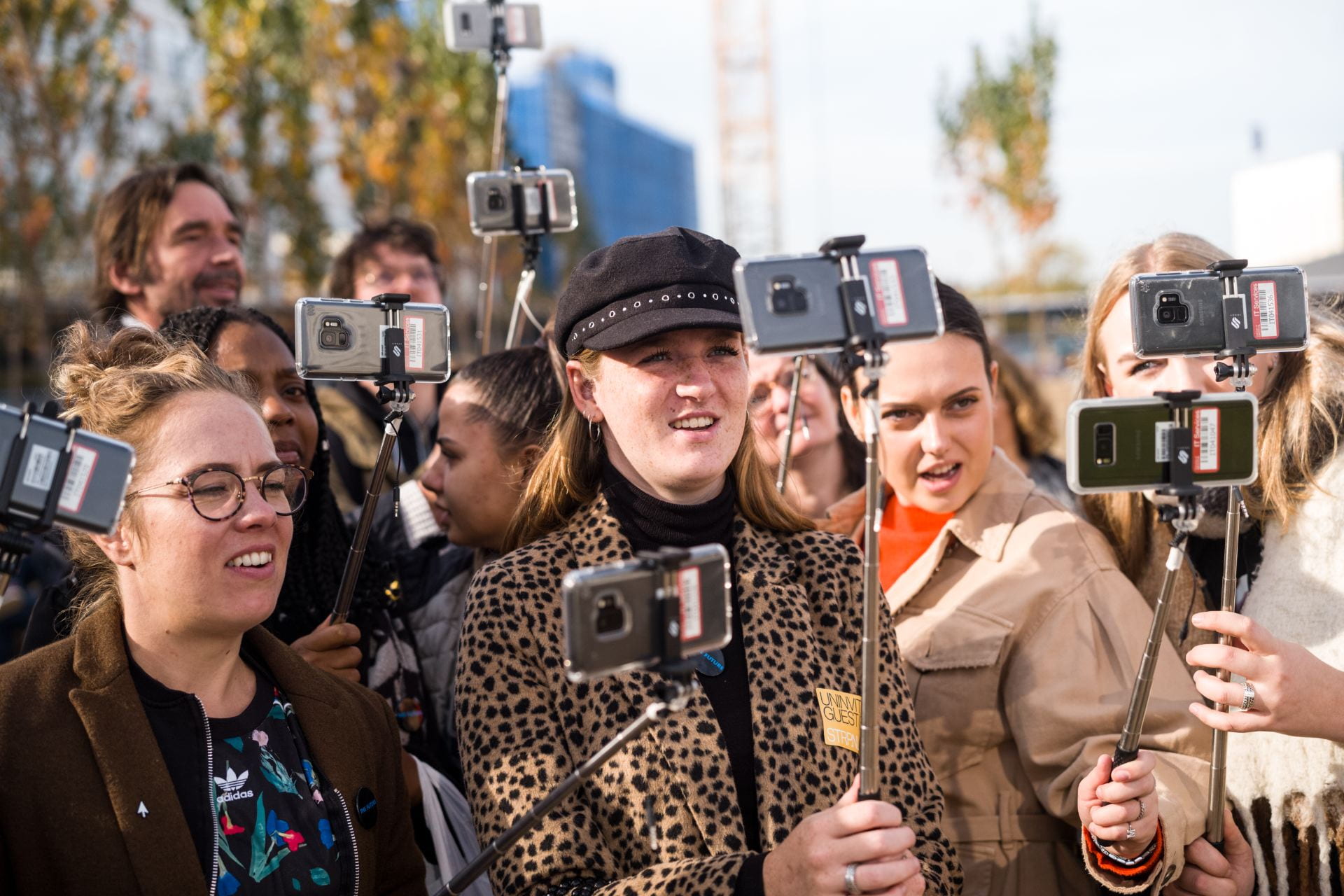Projecting Future Places
How can augmented reality, creative practices and immersive technologies be applied to problems identified by architects, councils and community groups around engaging a broader range of people with local planning?

What did the project involve?
This project led to the development of the Future Places Toolkit. The current Future Places Toolkit demonstrator has developed out of a previous Uninvited Guests AR performance Billennium (2018-22), which asks audiences to reflect on the present through the future and uses technology to enable participation.
Future Places Toolkit is an Augmented Reality (AR) engagement activity for planning consultation and neighbourhood visioning. It explores ways in which performance, science fiction storytelling, and AR can inspire people to imagine preferred futures for their places. FPT applies creative practices and immersive technologies to problems identified by architects, councils and community groups around engaging a broader range of people with local planning.

Using AR, communities get to experience in situ the futures they want for a specific place. As people talk and come up with ideas together, what people imagine appears around them, drawn over the buildings of today. The app also allows you to see options that are already planned for an area. Participants get to explore what these ideas would be like, how people could use them, and make changes to the AR illustrations. Using immersive audio, people also get to hear what their future high street or public realm might sound like.
Who are the team and what do they bring?
- Paul Clarke (Uninvited Guests / Theatre, University of Bristol) is a co-founder of Uninvited Guests and a practitioner-researcher, exploring the use of digital technologies in participatory and place-based performance, along with creative responds to archives.
- Jessica Hoffman & Duncan Speakman (Uninvited Guests) are co-founders of a Bristol based performance company, with over 25 years’ experience of using creative technologies to engage audiences and enable them to participate. Other features of their work are their use of new technologies to tell stories and re-imagine the world, and the way we reflect on our past to think about the future.
- Sam Steer is an animator and illustrator proficient in live illustration. They are a maker of stop-motion, after-effects animation, live video projection, illustration, drawing and painting. Sam Steer’s Website.
- Luca Biada & Michele Pannegrossi (FENYCE) create participatory digital environments that provide immersive experiences for the arts including performance, improvisational manifestations, art fruition or education. Their interactive installations and exhibits bring novel experiences to public and private spaces. Their aim is to keep pushing the boundaries of interactivity in multi-user digital experiences and develop gestural interfaces for virtual and augmented reality, providing direct and seamless interaction paradigms for mixed reality environments.
- Simone Einfalt & Jack Norris (Zubr) are one of the UK’s leading AR and VR studios. They work for agencies, digital marketing, events, and industry specialists. They also work for heritage, tourism, culture, education and artists.
What were the results?
The team have been working with Filwood Broadway Working Group and Bristol City Council as part of a consultation process around improvements to Filwood Broadway in Knowle West. This was also supported by Knowle West Media Centre and Filwood Community Centre. Most recently the team ran a series of workshops during Knowle West Fest on 1st October 2022, engaging residents of all ages, including the local Youth Council.
This led to the article, ‘Future Places Toolkit: Engaging communities through augmented reality and performance’, in UCL’s Research for All, Vol. 5 (2), September 2021, pp.205-226 (10,000-words, open access journal). FPT is one of the creative approaches to futuring that will be applied by the Centre for Sociodigital Futures (2022-27) on which Clarke is a Co-I. This work in contexts beyond planning will generate additional impact, for instance they are running FPT at the Neighbourhood Futures Festival, Birmingham Settlement, July 1st, 2023.
Recently two further innovation and enterprise grants for Future Places Toolkit have been successful, MyWorld/Digital Catapult Catalysts and Connectors: Tools for the Creative Industries, led by Zubr and focused on software development, and Clarke and partner’s Impact Acceleration Account Enterprise Development Fund.
A further development of the FPT was the project Future Soundings by Uninvited Guests, which was presented at a Defra/Policy Lab event called Changing Course, on transforming decision-making around rivers and ways to involve people/communities in this.

